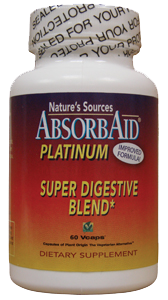Do You Eat a Lot of Cooked Food?
Why Adding More Raw Foods to Your Diet is a Smart Move
by www.SixWise.com
Asking most people whether they eat a lot of cooked food may sound like a silly question. After all, we’re conditioned to cook all of our meat thoroughly to avoid bacteria and parasites, and even our dairy products and juices are pasteurized.
|

When food is cooked valuable enzymes are destroyed.
|
For many, raw food in their diet consists of an occasional salad or piece of fruit, as even most veggies on Americans’ dinner plates are of the cooked variety.
So what’s the problem, you may now be wondering?
Raw plant and animal foods (such as raw milk) are loaded with beneficial enzymes for your body. (Enzymes are actually special proteins that act as catalysts for the chemical reactions that occur to keep your body functioning.) However, enzymes begin to be destroyed at temperatures above 110-115 degrees. So if your food is cooked, pasteurized or processed, it will contain no enzymes whatsoever.
"When you cook something, you destroy the enzymes," said Karyn Calabrese, a well-known raw foodist in the Chicago-area in an NBC5 article. "You need enzymes for every metabolic purpose in your body. When you lose enzymes, that's when you die."
Even though your body produces some enzymes on its own, if you’ve been eating only cooked foods for a long time, your body must divert extra energy to producing more and more enzymes to break down this food.
This puts a strain on your digestive organs, including your pancreas, and some say may cause premature damage to these organs that can impact your overall health.
On the other hand, if you eat raw foods that contain their own living enzymes, you’re giving your body a break, and allowing it to digest efficiently with very little effort. This is actually one of the key benefits that raw foodists often give to advocate a raw food diet.
Why Getting Enzymes From Your Food is Important
Your body contains 2,500 or more different enzymes. Enzymes in your saliva, for instance, help break apart starches, while those in your stomach help break down protein. Enzymes in your intestines, meanwhile, are responsible for breaking apart all of your food, whether fat, protein or carb. These digestive enzymes are what allow your food to be broken down, and the nutrients absorbed by your bloodstream.
There are other types of enzymes as well, namely metabolic enzymes and food enzymes, which are responsible for initiating, speeding up, slowing down, or otherwise altering about 4,000 different biochemical reactions. Millions of these reactions take place in your body each day, helping you to not only digest food but also to:
|

In Next Week’s Issue:
Food Inc., How Much Do You Really Know About the Food You Eat?
Next week watch for our featured article on “Food Inc.,” a documentary that “lifts the veil on our nation's food industry (watch the movie’s official trailer now), exposing the highly mechanized underbelly that has been hidden from the American consumer with the consent of our government's regulatory agencies, USDA and FDA.”
Get a shocking inside look at the U.S. food system -- for instance did you know it’s controlled by a handful of corporations that put profit ahead of consumer health? -- and find out how and why the food you eat is making you, and your family, sick!
|
-
Assimilate and digest nutrients
-
Breathe
-
Detox certain organs
-
Purify your blood
-
Move your muscles
-
Produce and regulate hormones
-
Renew and repair your cells
While your body does produce enzymes on its own, an important source is the enzymes you get from raw food. If you eat primarily cooked food, however, there’s a chance your body may be deficient in these important catalysts to your digestion.
Other Problems With Cooked Foods
Aside from depleting the enzyme content, certain cooking methods, namely those that use high temperatures, actually create harmful compounds in your food. These include:
-
Heterocyclic Amines (HCAs): Heterocyclic amines form when food is cooked at a high temperature, either by grilling, broiling, frying or searing. The longer you cook your meat, and the higher the temperature, the more HCAs that are formed. The worst part of the meat, from an HCA perspective, is any blackened section.
|

By adding more raw foods to your diet you may be able to digest more efficiently with less effort.
|
-
Avanced Glycation End Products (AGEs): Advanced glycation end products are also produced when meats are cooked at high temperatures, such as while grilling, frying or broiling (they're also produced when foods are pasteurized or sterilized).
AGEs, according to researchers at Mount Sinai School of Medicine in New York, build up in your body over time leading to oxidative stress, inflammation and an increased risk of heart disease, diabetes and kidney disease.
When you do cook your food it is always preferable to cook foods at lower temperatures than higher temperatures, not only because the nutrients are better preserved and chances of creating harmful compounds are minimized, but also because the oils that you cook your food with -- particularly vegetable oils like soybean, corn and canola -- are easily damaged (oxidized) by the heat, posing further health risks.
Tips for Adding Raw Foods and Enzymes to Your Diet
The ideal way to add enzymes to your diet is simply by eating more raw foods. Be generous with consuming raw fruits and vegetables, and also consider adding other sources of raw food to your diet, such as raw milk and raw-milk cheese.
|
Do You Eat a Mostly Cooked-Food Diet? You Need AbsorbAid Platinum: Super Digestive Blend

AbsorbAid Platinum is a vegetable-based digestive enzyme system that combines its effective ratio of proteases, amylases, lipases and cellulases with two “acid-tolerant” bacteria or a probiotic combination, Lactobacillus acidophilus and Bifidobacterium bifidum. AbsorbAid Platinum:
- Breaks down all food groups
- Maximizes nutrient absorption from consumed food
- Helps alleviate digestive disturbances such as gas, bloating and acid indigestion
Learn More and Order AbsorbAid Platinum Now!
|
For those of you interested in trying out some delicious, enzyme-rich raw food recipes, Alive in 5: Raw Gourmet Meals in Five Minutes is highly recommended. Even those who are new to raw foods will enjoy the simple recipes (most can be prepared in five minutes!) for lasagna, spaghetti marinara, stuffed mushrooms, broccoli in cheese sauce, apple pie and more. They're healthy and delicious, and will make you want to eat raw for the taste value alone.
Another option if your diet consists primarily of cooked foods is to take an enzyme supplement. There are numerous enzyme supplements available on the market to help increase your levels, but Sixiwse.com highly recommends the plant-based, acid-resistant digestive enzyme formulation, AbsorbAid Platinum from Nature’s Sources.
This vegetable-based digestive enzyme system combines its effective ratio of proteases, amylases, lipases and cellulases with two “acid-tolerant” bacteria or a probiotic combination, Lactobacillus acidophilus and Bifidobacterium bifidum.
This product addresses not only the digestive enzyme system deficiencies recognized in most adults, but it combines two effectively beneficial bacterial strains that are metabolically complementary and help create a symbiosis with the digestive enzyme system complex and helps promote immune system excellence.
Further, AbsorbAid Platinum by Natures Sources is manufactured by a company that offers superior, quality standards in its manufacturing and filling operations.
So while eating more fresh, raw foods will help keep your enzyme stores at a healthy level, if you don’t eat many raw foods, or are looking for a bit of extra insurance, taking a high-quality enzyme supplement is a smart move.
Recommended Reading
Enzymes: Are You Lacking These Crucial Catalysts to Your Digestion?
Eating Raw: The Advantages and Disadvantages According to Various Experts
Sources
ABC7Chicago.com
The World’s Healthiest Foods, Enzymes
NaturalNews.com December 19, 2007